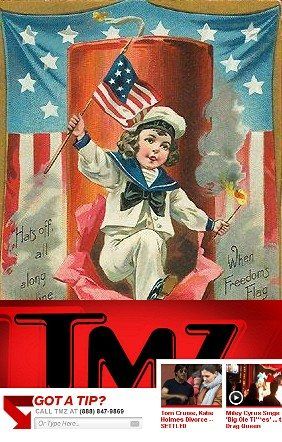Culture & Media
A Parade Passed By: Rethinking Our Democracy

The Fourth of July parade rolled down Main Street in Santa Monica while I sat at the computer writing this. Only half a block away, I could hear the sirens and the bands and the sound trucks. What kept me here instead of there was a desire to reflect, not celebrate. Twice a year – on Martin Luther King’s birthday in January and now – I think about the state of American democracy.
I believe in democracy. I believe that democracy is the best form of government human beings have devised to date because it allows people to actually make changes in the government when they feel it’s required. Monarchies, aristocracies, dictatorships and oligarchies preclude that option. In Western civilization, this country broke the tradition of absolute power to create a republic – although participation was narrow: Voting was limited to male property owners. Over the next 150 years those rights expanded.
Voting rights expanded because people struggled for them. Women who demonstrated for the right to vote were arrested, went to jail, held hunger strikes, were beaten and raped and killed. African Americans suffered the same fate — first in the post-Reconstruction era when Jim Crow laws and civilian violence crushed African American rights, then again during the Civil Rights movement of the 1950s and ’60s. Voting rights did not expand in a straight line – nor even along a straight line of struggle. Sometimes, for example, African Americans had the right to vote, as in New York during the early 1800s, and then those rights were taken away.
Now the evidence suggests that voting rights are contracting again. You might have thought that Florida would have learned from its registration purge scandal of 2000 that targeted African Americans in particular, but Florida actually continues the practice. Seven states now require government-issued photo identity cards: four in the Deep South, two border states, one Northern state. These laws limit voter participation – especially among African American, Latino, older and poorer voters whose capacity to secure birth certificates, document citizenship or pay for such is limited.
More than legal maneuvers remove people from the voter roles. Usually people take themselves out of the polls. They just don’t vote. Maybe they are too busy or overworked, or out of town or too poor to even care. While everybody seems to hold political opinions, not everyone pays close enough attention to vote – which is their power to do something about those opinions.
But mostly people are distracted by the clatter and chaos American culture provides. The country seems enthralled by the shrillness of rhetoric in the media and the only way the news media play an issue is through conflict. He Said/She Said seems to be the only school of journalism in session in this country – which hardly helps voters reflect on problems and their solutions.
They are also distracted by the sight of huge displays of glittering lights. A baseball game must also have fireworks. Movies need to be in 3-D or offer more fear and mayhem than the last one. Sports competition must be extreme. The more spectacle there is, the more delighted we appear — and the more distracted from the seriousness required for democracy to survive.
Carl Jung said, “Fear seeks noisy company and pandemonium to scare away the demons.” Since 9/11 we have all felt afraid, and candidates, elected officials, airport security, wars, counter-terrorism bureaucracies and economic recession all enhance the degree of our collective fear. In such an atmosphere, distraction makes perfect sense. Which is why I sat at my desk and reflected, instead of standing on the curb watching the parade pass by.

-

 The SlickJanuary 27, 2026
The SlickJanuary 27, 2026The One Big Beautiful Prediction: The Energy Transition Is Still Alive
-

 Column - State of InequalityJanuary 29, 2026
Column - State of InequalityJanuary 29, 2026Are California’s Billionaires Crying Wolf?
-

 Latest NewsFebruary 3, 2026
Latest NewsFebruary 3, 2026Amid the Violent Minnesota Raids, ICE Arrests Over 100 Refugees, Ships Many to Texas
-

 Dirty MoneyJanuary 30, 2026
Dirty MoneyJanuary 30, 2026Amid Climate Crisis, Insurers’ Increased Use of AI Raises Concern For Policyholders
-

 Featured VideoFebruary 4, 2026
Featured VideoFebruary 4, 2026Protesters Turn to Economic Disruption to Fight ICE
-

 The SlickFebruary 2, 2026
The SlickFebruary 2, 2026Colorado May Ask Big Oil to Leave Millions of Dollars in the Ground
-

 Column - State of InequalityFebruary 5, 2026
Column - State of InequalityFebruary 5, 2026Lawsuits Push Back on Trump’s Attack on Child Care
-

 Column - California UncoveredFebruary 6, 2026
Column - California UncoveredFebruary 6, 2026What It’s Like On the Front Line as Health Care Cuts Start to Hit

